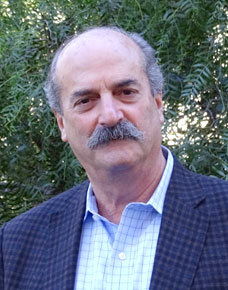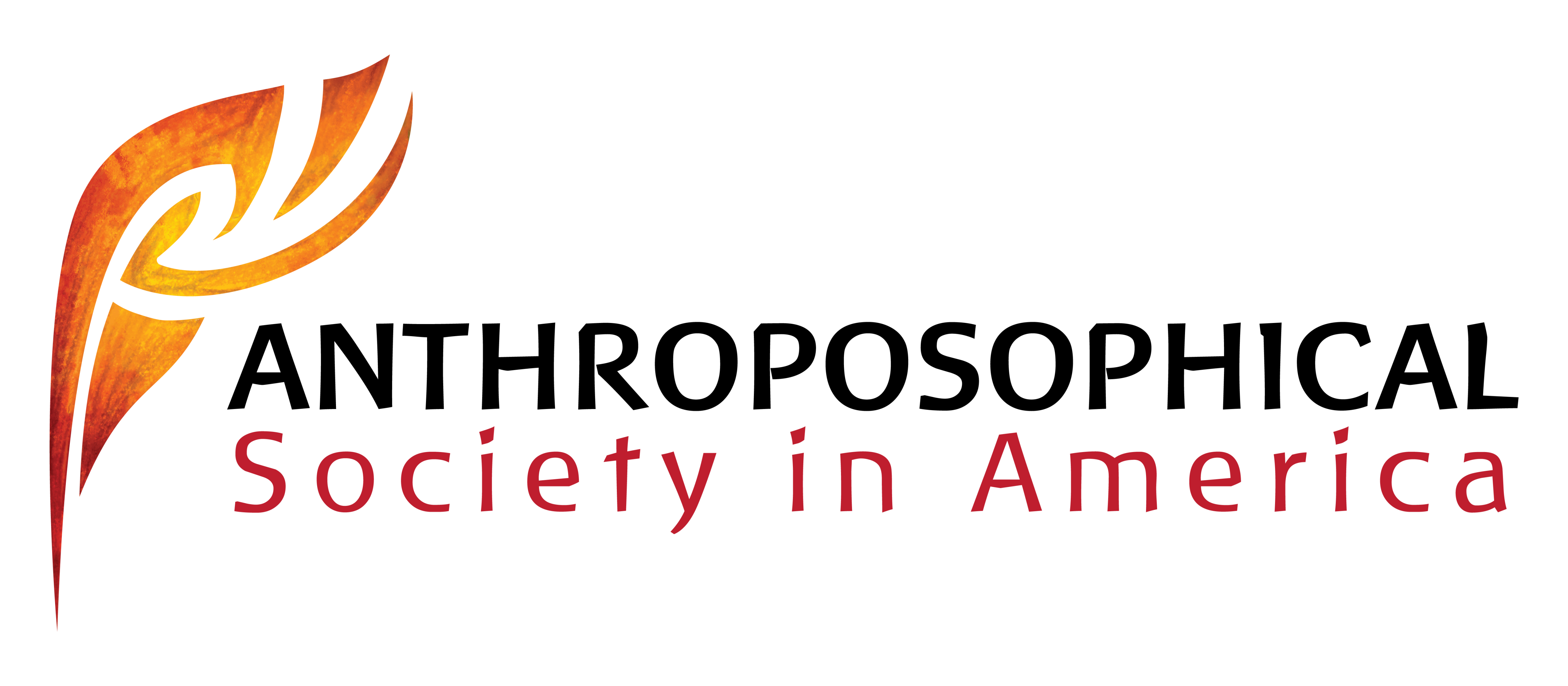From the General Secretary
From the General Secretary
January 18, 2021

Dear Members and Friends,
These days, it seems like the happenings of social life are everywhere framed in a narrative of polarities: true/fake, mask/no mask, vaccination/anti-vaccination, racist/anti-racist, individual rights/social rights, spiritual/material. This kind of binary narrative, without the willingness to open a middle inclusive way, sets the ground for divisive forces that are both powerful in their clarity and disempowering in encouraging into sleep our capacity for discernment and honest conversation.
Added to that, COVID has created new challenges to finding ways to reach across social distance, and to sustain the warmth of relationships we may be accustomed to in-person. Such an experience can happen, as the Society’s Holy Nights gatherings “A Rose By Any Other Name” made clear. Personally, being online so much has forced me to work with a different kind of consciousness of the narratives we create and the very processes of communicating in a world that has become vertically flat, digitally speaking, and polarized by belief systems.
In isolation and left to our devices, we rely heavily upon what we believe and how those beliefs are informed. In turn, those beliefs condition what we expect to experience and with whom we feel safe or aligned. These inner processes are the grounds on which polarized narratives thrive if we let them. For example, when I venture out to shop for necessities, I do so with a heightened sense of avoidance. The invisibility of the virus is a set up for fearfulness and denying fearfulness is a set up for risk. Do I believe that risk or not? This is a very disempowering place to be, so it is no wonder that people seek compensatory power and actively exercise it based upon their beliefs—which makes others’ beliefs wrong. This binary narrative is also actively cultivated and reinforced in the public space. Competition for the power of my narrative to be right defines us as winners or losers. Such a binary characterization serves as an agent of dehumanization—the very opposite of what anthroposophy stands for.
As I was struggling to recognize, reconcile with, and transform the persistence of binary narratives, I found myself deeply moved by the following passage from Rudolf Steiner’s December 24, 1920 lecture, part of a series on the Christmas festival. This one was given in Dornach. I was further stunned by the notion that the lecture was dated almost exactly one hundred years ago to the day I was reading it:
Whenever we ourselves contribute to or cause disharmony, could we not try to reflect that it cuts us off from what appeared amongst humankind on the holy cosmic eve of Christmas? Could we not let this Christmas mystery flow into our soul as something that brings hearts and minds together in love and harmony? We cannot do this if we fail to understand the real nature of spiritual science. If we bring into this community all that we have picked up from all corners of the world, where nowadays only routine and empty phrases prevail, this community will come to nothing. Let us reflect that the forthcoming year will no doubt be a difficult one for this community, that we will need to gather and harness all our forces; and let us go into the Christmas festival with this in mind. Oh, if only I had the words to inscribe these things deep into every person’s heart this evening! Then each of you would feel how my words bear a greeting that, at the same time, urges you to warm spiritual science in your hearts so that it becomes a power to help and sustain a humanity currently living under such terrible pressures and burdens.
[Rudolf Steiner, Universal Spirituality and Human Physicality: Bridging the Divide, Lecture 14, Dornach, December 24, 1920. Rudolf Steiner Press: Forest Row, p 185.]
I have to ask myself every day, have I been able to bring presence and insights that warm rather than harm, heal rather than hurt, an openness that bridges divides rather than an analysis that reinforces them? Have I been able to really see others in a way that honors who they are rather than as I expect or need them to be? Can I still strive for this in a digital space? What Rudolf Steiner was pointing to is a central aspect of anthroposophy: To warm spiritual science in our hearts is a responsibility to work on our path of self-knowledge so that it becomes a capacity to serve others.
There is of course a danger here that I find connected to the concept of spiritual freedom. That is, as I follow my path, I need to do so out of inner freedom, and I have to respect that same reality for others. Which means I really cannot judge others by the same reflective process I apply to myself—even understanding how I know what I know is a necessary part of my path. To use my individual process to judge others is actually an abuse of spiritual freedom. And, through a common striving and respect for spiritual freedom, the dignity of the individual becomes a key bridge across the binary. So, it is critical to overcoming binary thinking to develop an understanding of the differences between spiritual and political freedom. The risk of not having a living grasp of the distinction and boundary between them is one of bringing harm rather than healing.
I would like to share a practical example of this distinction. A friend forwarded to me an email circulating on the web accompanied by a real question about what to make of it. The email contained a portrait of Rudolf Steiner accompanied by a quote ascribed to him about a vaccine to be created in the future that would prevent the capacity for spiritual development. The image and quote had all the portent of propaganda, especially since it arrived with little to no context. There is much in the quote that is esoterically significant regarding the progressive path of materialism in modern science. That is a whole study in itself.
Such quotes, co-opted to make a case for a cause in the here and now, deliberately tap into fears and become an impingement on inner freedom. Rather, such insights best serve evolving understanding, and are not meant to polarize in the sphere of rights. It is an ethical breach to use spiritual knowledge for power over others. In this context all that is served is to further division between and among us. Rights are only relevant when there is more than one person because, in the ideal, such rights reflect mutual social agreements. An individual, outside a social context, is free and has only their own moral/ethical guidance. So, the social challenge is: To cultivate the moral/ethical question in each individual such that they come into the social world with respect for the moral/ethical reality each other individual carries; and then, generate living agreements that constitute having power with each other out of recognizing both the spiritual and material reality of the practical world. I want to emphasize recognizing the “both/and” here as a moment of transcending polarity. Without this recognition, we devolve into an impossible-to-reconcile battle over individual vs. social rights.
This devolution I am referring to is the binary narrative we must break through if we want to work toward a more human future. If anything, anthroposophy holds the health, wellbeing and development of each individual at its center. As Rudolf Steiner indicates in his lecture from December 24, 1920, the dignity of every human being was important to him in a way that was unconditional and based in the understanding that humans are spiritual beings evolving across incarnations. For him attending to the spirit, what arises out of freedom in the moral atmosphere, was what he wanted to bring as a balancing force into a Western culture that is constantly being drawn more deeply into the physical and the material.
Rudolf Steiner offered a discipline available to anyone willing to take up the work to develop the capacity to experience this “invisible” reality, and from there bring a more healing impulse into the world. It is not: “Freedom’s just another word for nothing left to lose,” as songwriter Kris Kristofferson wrote, and Janis Joplin made popular. Rather, inner freedom is a concept for everything we need to take up as moral and ethical human beings. Supporting that experience with and for each other will also help free us from the power of the binary narrative and help us bridge our divides. From a place of spiritual freedom, our political and economic lives will feel and operate very differently. But that discussion is for another time.
John Bloom
General Secretary

John, thanks so much for these comments. I resonate deeply with your thoughts about being constantly confronted with binary situations. Whenever I encounter a binary choice I try to stop and recognize that there is most likely a middle way that is the truly human way. With something like the vaccine, each of us will have to make a decision: do I take or not? But even with that seemingly binary choice, what are the ameliorating actions I can take to balance my decision. There are those who are 100% sure one way or the other of their decision, but many of us are in a more gray area. Our place is to make our decision on the best information we have, take actions to balance our decision, and not be in judgement of others.
Thank you, Dennis, for your balanced reply – balanced rather than “gray middle”.